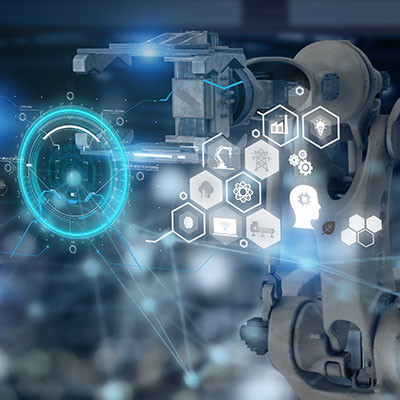Global Tech Solutions Blog
The IIoT and How It Is Transforming Large-Scale Industry
Businesses have been starting to embrace the Internet of Things (IoT) for quite some time now as they can see the benefit of using devices to streamline parts of their business processes that may not be actively engaging. There is another growing trend in the space that is more sophisticated and could be one of the most transformative technologies in the near future, this is the Industrial Internet of Things (IIoT). This month, we discuss what the IIoT is and how it can be used by certain companies to massive benefit.
Introducing the Industrial Internet of Things
The IIoT is a much more sophisticated type of digital transformation technology that provides large-scale industrial companies the opportunity to enhance their data collection, analysis, and automation.
IIoT Compared with IoT
The IIoT is a form of IoT, but while many of the IoT devices that are used are commercially available and come with their own specific function, the IIoT is a technology construct used by manufacturers and other large-scale companies to build incredible efficiencies. It does this by being a central part of any operating process and gives organizations the ability to see (and often automate) workflows in real-time.
The main difference between the IoT and the IIoT is how the technology that fuels these platforms is deployed. IoT devices are generally inexpensive and can provide value by handling one process pretty well. Think about a smart thermostat: It can be set to automate based on changes in heating and cooling needs. This is useful, but it isn’t all that transformative for a business. The IIoT, however, is a ground-up platform made by putting sensors, actuators, and smart computing processes to work for a business with a lot of moving parts to essentially give real-time knowledge to managers that then can alter processes to create optimal efficiency.
More than that, IIoT devices are manufactured and developed to withstand physically demanding environments, which makes them perfect for huge agricultural firms, manufacturers, and shipping companies that have to deal with the elements or friction. Since these systems are remotely monitored, IIoT technology can be developed to automate processes from locations far away.
Data in the IIoT
Like any other Internet of Things system, data collection and analysis is the central benefit. These platforms deal with a lot of data and using AI and other advanced technologies, they are able to sort through this immense amount of data to make changes to their current business, or even predict events that will happen and make proactive decisions based on those metrics.
While cloud computing can be used, bandwidth becomes an issue. Most IoT systems can be simply run by a public cloud provider, but an IIoT platform, because of its impressive breadth, will have to be supported by networking and computing infrastructures that can handle the data flow. This is why these platforms are so expensive to implement.
Additionally, since the IIoT is a ground-up implementation, there are opportunities for application development to fit the organizational and operational needs of the company. This provides a strong, reliable flow of data that can be completely transformative for organizations that implement these huge systems.
With these major outfits implementing IIoT systems, it has come to light just how much these systems can be used to improve the standard of living for people that live in urban areas. Being able to track and automate systems that needed massive amounts of manpower to run in the past can lead to more innovation in the space and use cases that include smart utility systems as the basis for future smart cities.
Does your business utilize IoT devices? If you haven’t considered the benefit of the IoT yet, you should contact the IT professionals at (800) 484-0195. We can help you gain perspective on just how smart devices can help you build a more efficient and effective business.



Comments